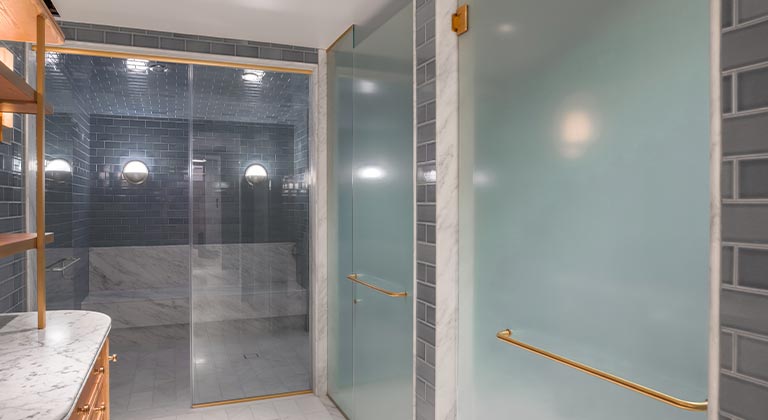
Anyone who is renovating an existing bathroom or designing a new space seeks elements and fixtures which fit into their design vision. With so many choices available for each individual element, navigating through them can seem overwhelming. There is, at least, one choice that appears to be an easy decision. No matter the bathroom’s design, when it comes to shower doors, most people prefer glass enclosures without frames.
Here are a few things to consider before making your final shower enclosure choice.
- Appearance: Frameless shower doors can add an upscale and stylish look. Reducing the amount of hardware can eliminate both the bulky frames and serve to highlight other design elements of a shower, such as stone, tile, or other attractive features.
- Ease of Cleaning: Some shower frames can allow bacteria and mold to grow in the “hard-to clean” grooves and tracks. Frameless glass eliminates such trouble spots.
- Resale Value: The improved appearance of frameless shower doors adds extra appeal for potential home buyers. Homeowners can earn the highest return on investment (compared to other rooms) in renovating the vanity, flooring and shower in their bathroom. Frameless shower doors can increase the value of your home by more than that of a traditional or framed shower enclosure.
- Custom Made vs. Assembly Line: Most shower doors are mass-produced, off-the-shelf doors. They typically do not feature any unique elements, or address unique size requirements that can be achieved with custom-designed glass enclosures. A custom, frameless design can provide ample space for a shower, even in tight spaces.
- Modern vs. Traditional: While framed shower doors may provide a more economical cost and traditional look, frameless enclosures offer a more updated look for any bathroom space.
- Maximizing Appearance of Space: A large, enclosed shower can take up a considerable amount of the bathroom space, increases your shower’s footprint and sometimes overpower other features. Frameless shower doors can lend the appearance of having more space, and make your bathroom seem bigger.
- Natural Light: When positioned near windows, frameless shower doors can increase your bathroom’s flow of natural light. A framed door can sometimes completely close off the shower area and restrict light.

Frameless glass shower doors are the most stylish and very economical door designs for bathroom renovations. They provide a contemporary appeal and a frameless design gives you ample space to use it even in tight spaces. Frameless enclosures eliminate both the bulky frames that can block your view and the hardware that increases your shower’s footprint. Frameless shower doors can save space over traditional shower doors, while providing adequate water control from inside the shower.
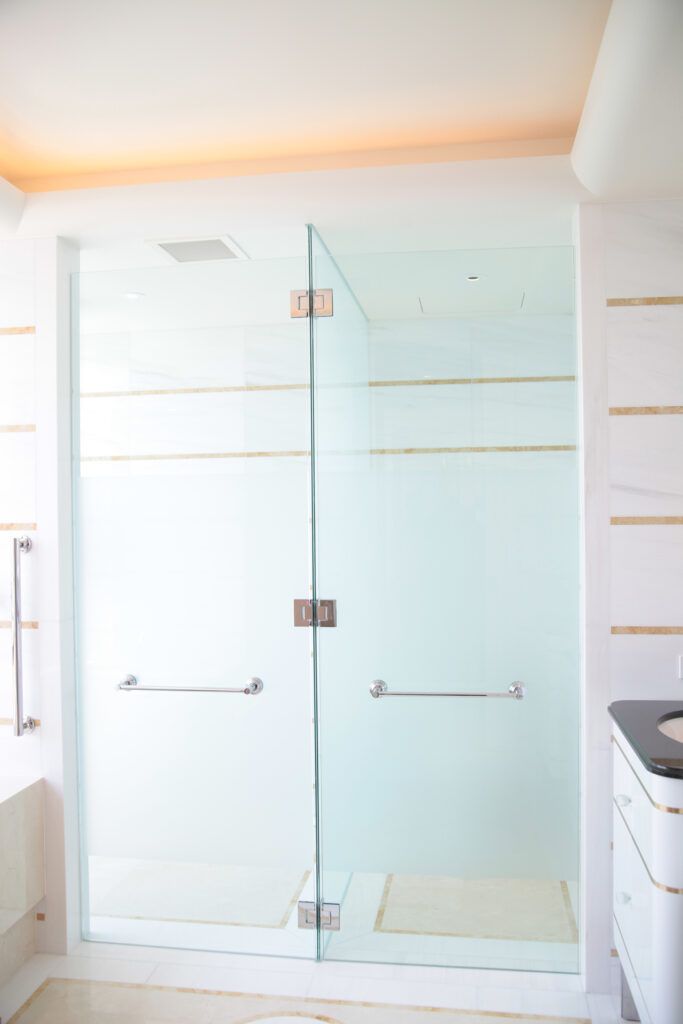
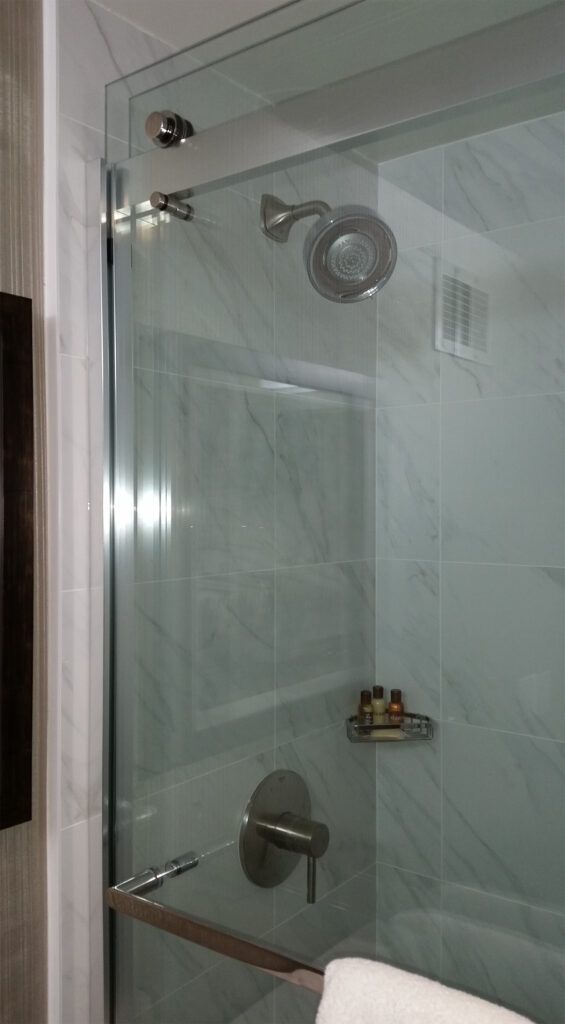
Glass Choices: Clear or Ultra Clear Starfire/Low Iron
This may sound simple—but there is a big difference here. Regular, clear glass has a slight green tint. Looking through a window with very thin clear glass, the tint is barely discernible. Frameless shower enclosures and doors use a glass thickness typically between ⅜ inch and ½ inch. The thicker the glass, the more noticeable the green tint becomes. Super clear, low-iron glass minimizes that tint, provides a much cleaner look, and will display your tile or shower surround with significantly less, if any, of that tint. Super clear glass is the preferred choice, although it comes at a higher price point. In over 95% of our shower projects, our customers select low-iron glass.
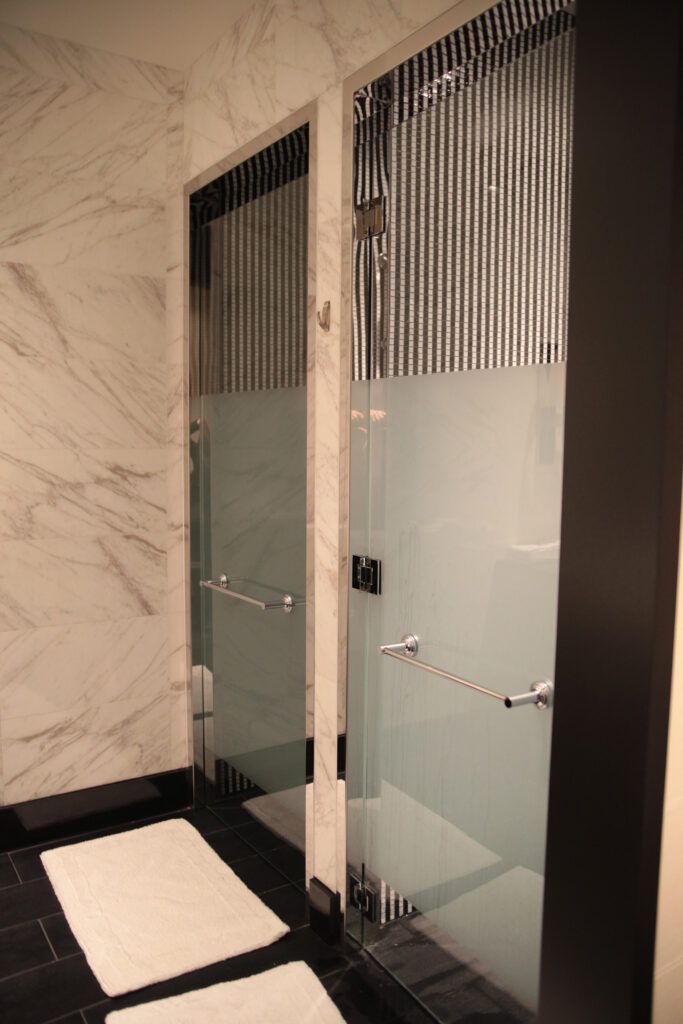
Glass Choices: Clear, Patterned, Obscure, or a Fade
Most of the glass we install in frameless showers is clear. In some cases, however, due to environments with communal shower usage, like at a gym, or where the shower is visible from another room, clients seek enhanced privacy. In these situations, sometimes we install frosted (aka “acid wash”) or decorative patterned glass to obscure visibility inside the shower.
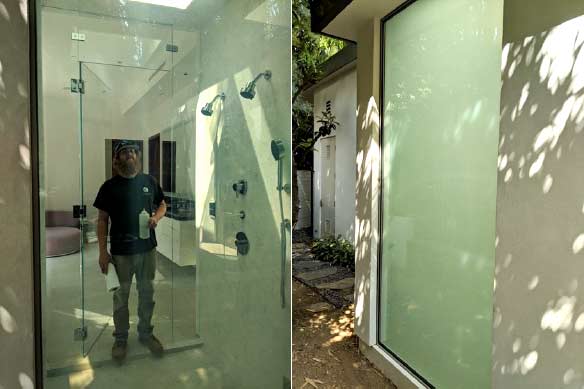
Glass Choices: Switchable Glass
Another solution for providing privacy to a shower door — on a permanent yet flexible basis — is with switch-lite privacy glass or smart glass. These options apply electrical film either as an inner layer in laminated glass before installation, or surface applied to previously installed glass. The technology enables the film to transform glass to completely transparent or obscure, at the flick of a switch.
Glass Protection: Untreated or Coated Glass
Another decision in reference to your glass selection is whether to use a protective coating. There are many benefits to coating your shower glass with a protective finish. Much like rust-proofing a car protects cars from salt in areas with snow, glass coating protects shower doors from hard water stains, soap residue and other contaminants. By providing a smoother surface, which makes spotting from such culprits far less likely, treated glass is easier to clean, repels more water, and requires less maintenance. Generally, untreated glass will pit and fog more readily than will treated or coated glass.
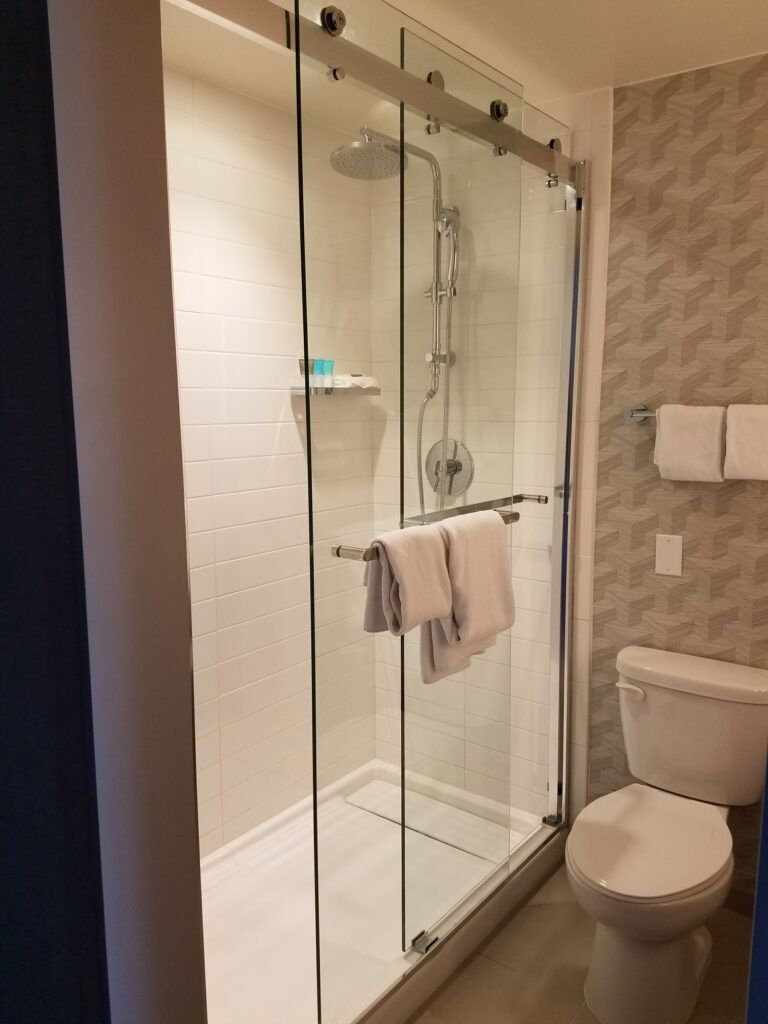
Frameless Sliding Doors – Doors and Panels
The most standard type of traditional shower door is one which swings outward to open, yet there are frameless sliding shower doors as well. These modern-style doors, called “barn doors,” feature exposed rollers.
Many clients upgrade the look of their combination tub and shower area by installing frameless sliding doors. Barn door frameless shower doors can work well with combined tub and shower areas that have either a partial side wall, or a full wall – or both!
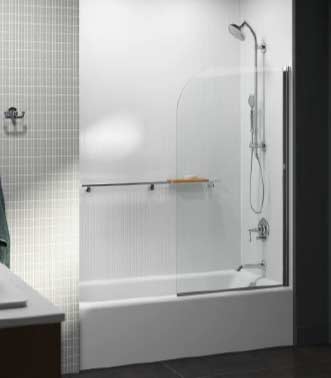
Stationary Panels
In larger bathrooms, inline shower screens are becoming more popular. A shower screen is an open shower enclosure that generally uses just one panel to keep water inside the shower area. The rest of the shower remains open and there is no door. In these larger shower enclosures, there is enough space between the area where water is contained, and the area outside the shower, to keep the floor dry outside the shower.
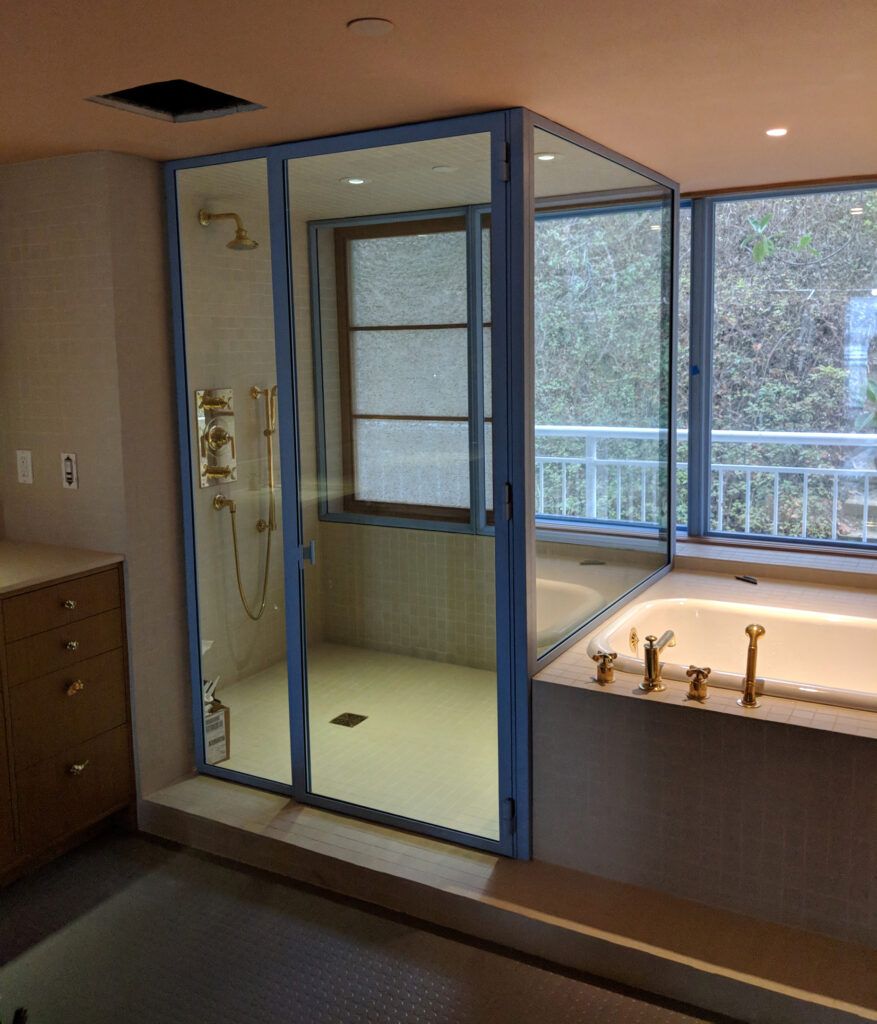
Steam Enclosures
These structures provide a protective layer used in homes, businesses, or industrial settings. They contain high humidity levels to inhibit the growth of bacteria and other microorganisms on their walls and ceilings.
There are many possible options for your shower enclosure choices. Once you define your space requirements, budget, and design preferences, it’s usually not too difficult to narrow them down to the best options for your project.
